Navigating the complexities of data compliance in the digital age and today’s regulatory landscape requires more than just understanding legal frameworks; it necessitates robust tools that adhere to these standards while simultaneously streamlining business processes. Data compliance software has emerged as a transformative solution, offering a wide range of capabilities from improved data organization to sophisticated analytics and automated compliance tasks. This comprehensive approach not only meets the rigorous demands of modern data privacy laws but also enhances operational efficiency and data governance across industries.

Improved Data Organization
Effective data management is the cornerstone of robust compliance and governance strategies. Data compliance software acts as a pivotal tool in organizing vast amounts of data into coherent structures that are both accessible and secure. This organization is critical as it enables businesses to meet their regulatory compliance requirements more efficiently and with greater accuracy. The software typically includes features such as metadata management, which categorizes data based on type, sensitivity, and importance, and hierarchical storage management that ensures data is stored in cost-effective, secure, and compliant manners.
By implementing such organized data systems, businesses can save time and facilitate easier data retrieval, which is crucial during compliance audits or when responding to data subject access requests (DSARs) under regulations like GDPR. Moreover, well-structured data reduces the risks of data breaches and loss by enabling organizations to establishing clear protocols for data handling and access controls, thus ensuring data integrity and confidentiality are maintained at all times.
Streamlined Business Processes
Data compliance software integrates deeply with existing business systems, automating and optimizing workflows to an extent that manual processes cannot achieve. This integration typically involves syncing with databases, CRM systems, and other digital tools to automatically apply compliance rules across all data points. For instance, by automating data validation checks, the software ensures that all incoming data adheres to quality standards before it is processed or stored. This capability is invaluable in industries like e-commerce or healthcare, where data accuracy directly impacts business outcomes and patient safety, respectively.
Furthermore, the automation of duplication checks and compliance reporting saves countless hours of manual review and manual effort and reduces the potential for human error. These streamlined processes not only enhance operational efficiency but also free up staff to focus on higher-value activities such as strategic planning and customer engagement, rather than getting bogged down in routine data management tasks.
Leverage Real-Time Data and Analytics Intelligently
In the fast-paced digital economy, the ability to leverage real-time data and analytics provides businesses with a competitive edge. Data compliance software is typically equipped with advanced analytical tools that enable real-time monitoring and reporting of data activities. These tools help businesses to not only track data flows but also to analyze patterns that could indicate potential compliance issues or operational inefficiencies.
For instance, predictive analytics and machine learning can be used to foresee future industry trends, based on current data, helping businesses to adjust their strategies proactively. Similarly, anomaly detection algorithms can identify outliers in data usage or access that may signify a data breach or misuse, enabling timely interventions. By integrating these intelligent analytics, companies can make informed decisions quickly, adapt to market changes more adeptly, and maintain continuous compliance with ever-evolving regulations.

Automate Compliance Tasks
The automation of compliance tasks is perhaps one of the most significant benefits offered by data compliance software. This feature supports a range of functions from monitoring changes in global data protection regulations and automatically updating compliance policies accordingly, to managing consent records and privacy preferences in line with user consents and regulatory mandates.
Such automation is crucial in sectors like finance and healthcare, where regulations are not only stringent but also subject to frequent changes. Automation ensures that businesses can adapt to these changes without the need for extensive manual overhauls of existing systems, thus maintaining uninterrupted compliance and minimizing the risk of penalties. It also aids in the generation and maintenance of audit trails, which are vital for demonstrating compliance in the event of regulatory reviews or legal challenges.
Real-Life Examples
The practical impact of data compliance software is evident in numerous case studies across various industries. A healthcare provider, for example, used this software to automate the processing and management of patient records, reducing the time spent on compliance-related documentation by 40%. This new technology not only streamlined patient care processes but also ensured that the provider met stringent HIPAA regulations more effectively.
In the financial sector, a multinational bank implemented data compliance software to centralize its data management systems. This centralization improved data accuracy and audit-readiness, making it easier for the bank to comply with global financial regulations like the Sarbanes-Oxley Act and the Basel Accords. The software helped the bank enhance its operational efficiency, reduce compliance costs, and mitigate risks associated with non-compliance.
These examples underscore the critical role that comprehensive data compliance software plays in not just meeting regulatory demands and privacy risks but also in driving business innovation and efficiency. By adopting such solutions, companies can ensure that they are well-equipped to navigate the complexities of modern data governance, turning compliance into a strategic advantage rather than a regulatory burden.
How Compliance Professionals Can Start Utilizing Data for Regulatory Adherence
For compliance professionals and businesses aiming to ensure regulatory adherence, the initial step involves a meticulous assessment of existing data processes and systems. This assessment helps to identify discrepancies, inefficiencies, or vulnerabilities within the current framework that could jeopardize compliance. By leveraging compliance software, professionals can streamline these data processes, simplifying management and analysis of vast data arrays crucial for meeting regulatory demands. Such software aids in structuring data storage, retrieval, and usage in ways that align with specific regulatory guidelines, ensuring that the organization’s data handling practices are compliant across all fronts.
Identify The Key Compliance Risks in Your Organization
understanding of both the operational context of the organization and the regulatory landscape it operates within. Compliance software facilitates this by integrating tools that allow for continuous monitoring and analysis of data transactions and operations across the system. This real-time surveillance helps pinpoint potential risks or non-compliant actions as they occur, enabling timely interventions. Moreover, such software often includes risk assessment modules that automate the evaluation of potential threats and vulnerabilities based on predefined regulatory criteria, thereby prioritizing risks according to their severity and potential impact.
Maximize your Legal, Compliance, and Audit Resources
Utilizing data compliance software enables organizations to allocate their legal, compliance data analytics, and audit resources more effectively. Instead of dedicating substantial time and manpower to routine surveillance and reporting tasks, teams can focus on areas with strategic importance or higher risk profiles. This strategic allocation allows for deeper dives into complex compliance issues, intricate audits, and detailed legal analyses where the risk of non-compliance poses significant consequences. It also allows for the optimization of resource expenditure in compliance operations, enhancing overall efficiency and effectiveness.

Identify The Data Sources That Can Be Used to Monitor, Assess, And Prioritize Risk
Effective compliance and risk management relies on the ability to gather and analyze data from various sources within the organization. Compliance software typically provides the capability to integrate multiple data sources, creating a unified system that monitors, assesses, and reports on data from across the organization. This integration enables a holistic view of the organizational data landscape, making it easier to both identify areas where risks might be concentrated and how data flows can potentially expose the organization to compliance violations.
Implement Mitigation Strategies to Address the Identified Risks
Once risks are identified, it is critical to implement appropriate mitigation strategies. Compliance software supports this process by automating the deployment of compliance policies and the enforcement of regulatory standards across the organization’s data handling practices. Additionally, it can track the effectiveness of these mitigation strategies over time, providing feedback and data-driven insights that can inform future compliance efforts. This automation ensures that compliance measures are consistently applied and adapted to evolving regulatory demands.
Make It Easier to Identify and Assess Compliance Risks
Data compliance software enhances the ability to quickly and accurately identify and assess compliance risks through advanced data analytics and comprehensive reporting capabilities. These tools analyze data patterns and trends that may indicate potential compliance issues, enabling proactive management of compliance risks. Simplified reporting tools also allow compliance professionals to produce detailed compliance reports efficiently, aiding in the clear communication of compliance statuses and needs to stakeholders and regulators.
Importance of Employee Training
The effectiveness of any compliance software heavily relies on the proper training of employees who will operate it. Training for compliance programs, should cover not only how to use the software effectively but also the underlying compliance policies it enforces. This understanding minimizes the risk of breaches caused by human error and enhances the overall data security posture of the organization by ensuring all team members are aware of compliance standards and procedures.
Proactively Monitor and Adjust Compliance Efforts
Compliance is not a static target; as regulations evolve and business environments change, compliance efforts must adapt accordingly. Compliance software provides essential tools for the continuous monitoring of compliance metrics and the generation of alerts for deviations from the set compliance parameters. These tools enable compliance professionals to remain vigilant and responsive to business needs, adjusting strategies and practices in real time to address emerging compliance challenges and regulatory updates.

The Transformative Impact of Data-Driven Compliance
Adopting a data-driven, proactive approach to compliance can significantly alter how an organization perceives and manages its regulatory obligations. By centering compliance strategies around comprehensive data analysis and automated processes, businesses can reduce exposure to risks, optimize operational efficiencies, and foster a culture of compliance that builds trust with clients, regulators, and the broader market. This proactive stance on compliance transforms it from a mandatory requirement to a strategic advantage, enhancing the organization’s reputation and competitive positioning in the industry.
Integration with Other Business Tools
For compliance efforts to be truly effective, they must be seamlessly integrated with other business systems such as CRM platforms, financial software, and HR systems. Data compliance software typically offers extensive integration capabilities, ensuring that data governance and compliance protocols are uniformly applied across all digital tools used by the organization. This integration supports a unified approach to data management and compliance, reducing data silos and ensuring that compliance measures are holistically applied throughout the organizational ecosystem.
Consider data mapping and implementation
Data mapping is a critical process in setting up compliance software, as it defines how data is captured, processed, and stored across the organization. Thorough data mapping ensures that the compliance software is accurately configured to monitor, control, and report on data in accordance with regulatory requirements. This step is essential for ensuring that all data elements are accounted for and that the software can effectively safeguard and protect sensitive data, throughout its lifecycle.
How Data Improves the Maturity Level of a Compliance Program
Using data intelligently within a compliance program elevates its maturity by providing deeper insights into operational dynamics and enhancing decision-making processes. These insights allow for more nuanced, actionable insights and strategic approaches to compliance, which are better suited to managing complex regulatory environments and diverse business activities. A mature compliance program not only meets current regulatory demands but also anticipates future challenges, positioning the organization to respond swiftly and effectively to changes in the compliance landscape.

Cost Considerations
While initial investments in data compliance software can be substantial, the long-term benefits significantly outweigh the costs. These benefits include reduced risks of compliance breaches, lower potential fines, enhance customer experiences and enhanced operational efficiencies. Many software vendors offer scalable solutions that can be tailored to the specific needs of businesses, ranging from small enterprises to large corporations, making it a cost-effective option for improving compliance across the board.
Ongoing support
Selecting a compliance software solution that includes comprehensive ongoing support is crucial for maintaining its effectiveness over time. This support ensures that any technical issues are quickly resolved, and that the software remains updated with the latest regulatory changes and technological advancements. Continuous support helps organizations adapt to the evolving compliance landscape, ensuring they remain compliant and secure regardless of how external conditions change.
Streamlines and automates the GDPR compliance process
For organizations subject to GDPR, compliance software plays a pivotal role in automating and streamlining key processes such as consent management, data subject access requests (DSARs), and breach notifications. This automation to streamline processes greatly simplifies the journey toward GDPR compliance, reducing the likelihood of human error and ensuring that all requirements are met consistently and efficiently.
Boosts data protection efforts
At its core, data compliance software is designed to enhance data protection measures. By implementing robust data security protocols and continuously monitoring data access and usage, compliance software helps safeguard sensitive information from unauthorized access and breaches. This level of protection is critical for maintaining the confidentiality, integrity, and availability of sensitive data itself, which are key principles of any comprehensive data protection strategy.
Minimizes the risk of non-compliance
Through automated alerts and reminders, data compliance software ensures that all compliance-related tasks are executed on time and in accordance with established standards. This automation minimizes the risk of non-compliance due to oversight or delays, helping organizations maintain a consistent compliance record and avoid potential penalties.

Ongoing updates and regulatory complexity
Data compliance software is continually updated to reflect the latest changes in laws and regulations, providing organizations with the assurance that their compliance processes remain aligned with current legal requirements. These updates are essential for managing the complexity of regulatory environments, particularly in sectors where regulations frequently change or are subject to significant interpretation.
By harnessing the power of data compliance software, organizations can not only meet the stringent demands of today’s regulatory environment but can also transform their compliance operations into strategic assets that drive business success and sustainability.
Take control of your compliance needs with our comprehensive data compliance software. Transform your business operations and stay ahead of regulatory challenges. Contact us today to learn more!



